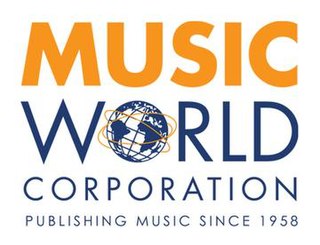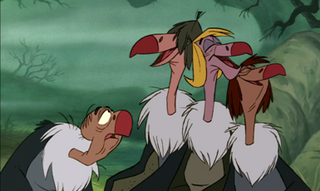Related Research Articles

Robert Bernard Sherman was an American songwriter, best known for his work in musical films with his brother, Richard M. Sherman. The Sherman brothers produced more motion picture song scores than any other songwriting team in film history. Some of their songs were incorporated into live action and animation musical films including Mary Poppins, The Happiest Millionaire, The Sword in the Stone, The Jungle Book, The Many Adventures of Winnie the Pooh, Chitty Chitty Bang Bang, The Slipper and the Rose, and Charlotte's Web. Their best-known work is "It's a Small World " possibly the most-performed song in history.
"Sister Suffragette" is a pro-suffrage protest song pastiche written and composed by Richard M. Sherman and Robert B. Sherman. It was sung by actress Glynis Johns in the role of Mrs. Winifred Banks in the 1964 Disney film Mary Poppins. The song's melody was originally from a scrapped piece called "Practically Perfect", also written and composed by the Sherman Brothers.

Music World Corporation is an American music production and music publishing company, representing hundreds of song and music cue titles for a small clientele of composers and lyricists including the company founder. The company was founded in 1958 by Academy Award-winning songwriter Robert B. Sherman.

Walt's Time: From Before to Beyond is a 252-page autobiographical, full-color book by Robert B. Sherman and Richard M. Sherman. It was edited by Disney Imagineers Bruce Gordon, David Mumford and Jeff Kurtti and was published in 1998 by Camphor Tree Publishers of Santa Clarita, California. Bruce Gordon did the book design and layout.
"The Parent Trap" was the title song from the 1961 Disney film, The Parent Trap. It was sung by teen idols, Annette Funicello and Tommy Sands and it was written by the songwriting brother team of Robert and Richard Sherman.
"For Now, For Always" was a sentimental ballad from the 1961 Disney film, The Parent Trap. It was sung by Maureen O'Hara, and was written by the songwriting brother team of the Robert and Richard Sherman.
"Fidelity Fiduciary Bank" is a song from Walt Disney's 1964 film Mary Poppins, and it is composed by Richard M. Sherman and Robert B. Sherman.
"The Life I Lead" is a song from the 1964 Walt Disney film Mary Poppins, composed by Richard M. Sherman and Robert B. Sherman. Music arranger Irwin Kostal used the theme from this song as the leitmotif of George Banks, as it most expresses the way he "marches" through life.
"A Man Has Dreams" is a song from the 1964 Walt Disney film Mary Poppins, written by Richard M. Sherman and Robert B. Sherman. In both the motion picture and the 2004 stage musical, the song is performed as a conversational duet between Bert the chimney sweep and George Banks. It is operatic in nature, sung dialogue, and was highly unusual for a musical film of that era. The song melody is a slowed-down version of "The Life I Lead", which serves as Banks's leitmotif. It incorporates a reprise of "A Spoonful of Sugar" which is Mary Poppins's leitmotif.
"Let's Go Fly a Kite" is a song from Walt Disney's 1964 film Mary Poppins, composed by Richard M. Sherman and Robert B. Sherman. This song is performed at the end of the film when George Banks, realizes that his family is much more important than his job. He mends his son's kite and takes his family on a kite-flying outing. The song is sung by Tomlinson, Dick Van Dyke and eventually the entire chorus.
"The Perfect Nanny" is a song from Walt Disney's 1964 film Mary Poppins, and it is composed by Richard M. Sherman and Robert B. Sherman. This song is heard at the beginning of the film, and its theme is heard through the film as a leitmotif for the children. It is sung by the characters of Jane Banks and Michael Banks. It is a lyrical musicalization of a would-be newspaper advertisement, describing in the kids' words what they feel the qualifications are for a good caregiver, as opposed to the strict type of caregiver their father wants.
"The Glorious Fourth" is a song written by Richard M. Sherman and Robert B. Sherman in 1974 for the then-upcoming American Bicentennial. Disneyland temporarily changed its "Main Street Electrical Parade" to "America on Parade" and featured the Sherman Brothers' song "The Glorious Fourth". The revamped parade featured nightly fireworks and ran twice a day from 1975-1977.
"Trust in Me (The Python's Song)" is a song in the popular Walt Disney film The Jungle Book, from 1967. The song was sung by Sterling Holloway playing the part of Kaa, the snake. The song was written by Disney staff songwriters Robert and Richard Sherman. In the song, Kaa quickly hypnotizes Mowgli into a calm, soothing, relaxing trance, sending Mowgli sleepwalking along his body until he finally coils himself around Mowgli just like he did before. As the song concludes, Kaa readies himself to devour the boy, only to be stopped by Shere Khan the tiger in his search for Mowgli.
"My Own Home" is a song from the Walt Disney film, The Jungle Book, from 1967. The song was sung by Darleen Carr playing the part of the girl from the Man Village. The song was written by Disney staff songwriters, Robert and Richard Sherman. This song serves as the basis for the Sarah Brightman song "On the Nile" and was sampled in the Slum Dogz song "The Jungle Book".
"The native girl sings "My Own Home" as Mowgli watches. Singer Darleen Carr was at the Disney Studio filming Monkeys, Go Home, and we asked her to record a demo of our new song. Walt (Disney) loved the demo, and many months later, when director Woolie Reitherman said 'We need to find a voice for the girl,' Walt, with his infallible memory, replied, 'You've already got her!'"

"That's What Friends Are For (The Vulture Song)" is a song in the Walt Disney film The Jungle Book from 1967. It was sung by a quartet of "mop top" vultures who are making friends with Mowgli, the main character of the film. The song was written by Disney staff songwriters, Robert and Richard Sherman, and sung primarily by J. Pat O'Malley, Lord Tim Hudson, Digby Wolfe, and Chad Stuart. Bruce Reitherman and George Sanders both made cameo appearances in the song singing as Mowgli and Shere Khan the tiger, respectively, in different parts. In the soundtrack album, The Mellomen member Bill Lee replaced the unavailable Sanders, a trained bass singer.
"Portobello Road" by the Sherman Brothers is a song, specifically a waltz (3/4) about Portobello Road in London, England. It was written for the 1971, Walt Disney musical film production Bedknobs and Broomsticks. It is sung by David Tomlinson about a street where, to this day–
Anything and everything a chap can unload
Is sold off the barrow in Portobello Road
"I'll Always Be Irish" is a song from the film musical, The Happiest Millionaire which was written by the Sherman Brothers and sung by Tommy Steele as "John Lawless" explaining that he will be proud to be American, but that we will remain just as proud to be Irish. Steele also sings the song, "Fortuosity", in the film.
"On a Little Bamboo Bridge" was a hit song in 1937 for iconic band leader Louis Armstrong. Music and Lyrics were written by Al Sherman and Archie Fletcher who were frequent collaborators. The copyright is held by Joe Morris Music Company, Incorporated.
"He's So Unusual" is a song from the late 1920s performed by Helen Kane, who was the inspiration for the Betty Boop character. The song was written by Al Sherman, Al Lewis and Abner Silver. Released on June 14, 1929, "He's So Unusual" was featured in the motion picture Sweetie. Shapiro, Bernstein & Co. Inc. are the publishers of record.
The Jungle Book is a Disney media franchise that commenced in 1967 with the theatrical release of the 1967 feature film. It is based on Rudyard Kipling's works of the same name. The franchise includes a 2003 sequel to the animated film and three live-action films produced by Walt Disney Pictures.
References
- ↑ Sherman, Robert B., Walt's Time: from before to beyond , Camphor Tree Publishers, Santa Clarita, California, 1998, p 81. ISBN 0-9646059-3-7
- ↑ Sherman, Robert B., Walt's Time: from before to beyond , Camphor Tree Publishers, Santa Clarita, California, 1998, p 80. ISBN 0-9646059-3-7
- ↑ Sherman, Robert B. The Jungle Book audio commentary. The Jungle Book - Platinum Edition